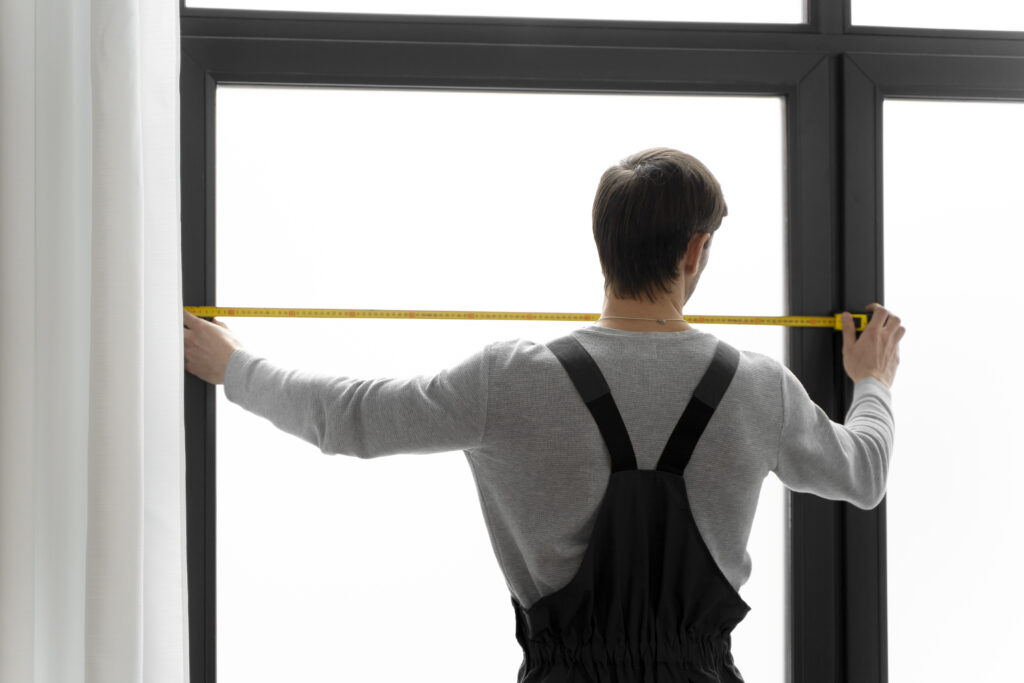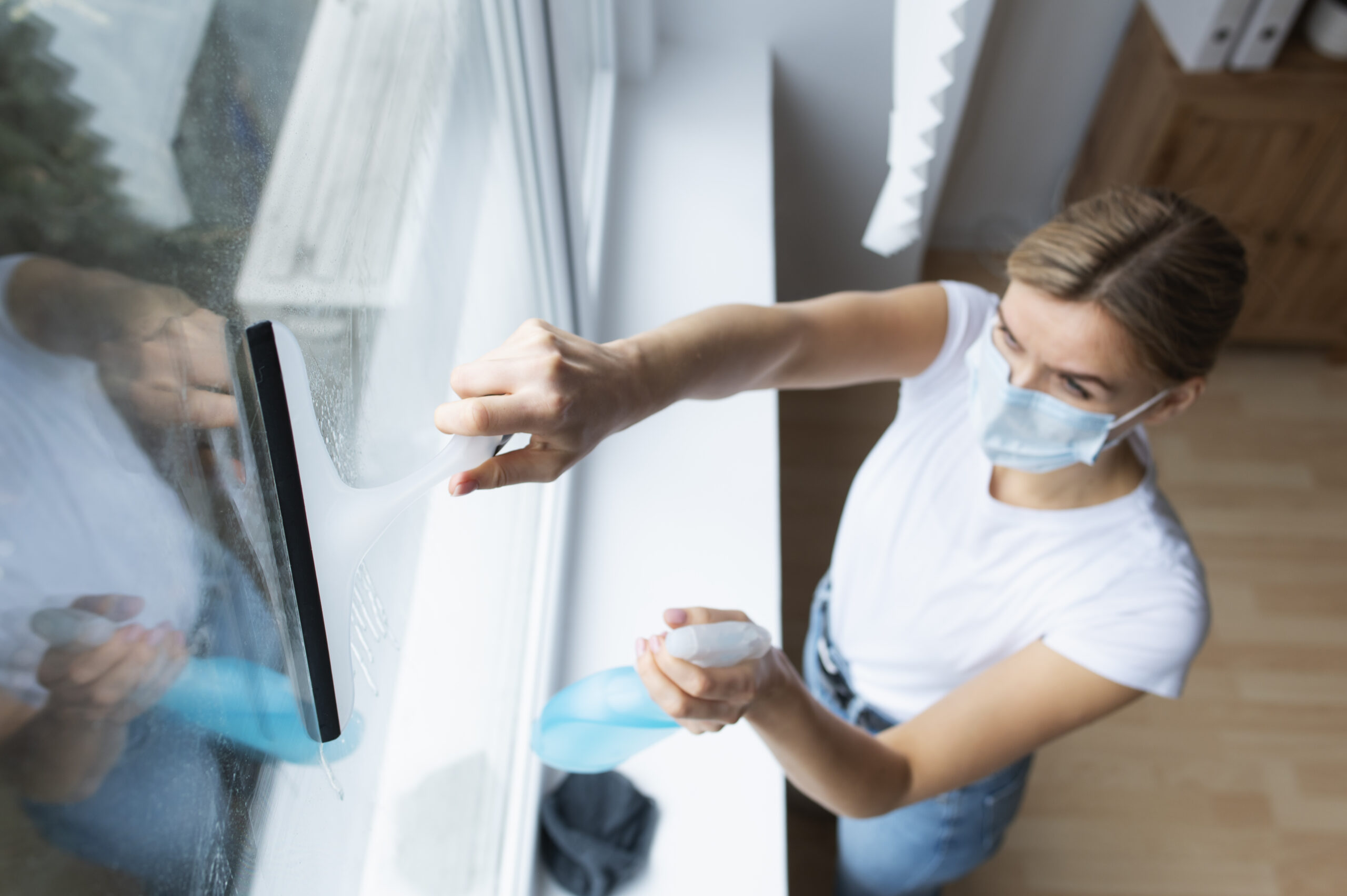The home improvement landscape is brimming with stylish upgrades, yet few are as overlooked and underestimated as home window tinting. While often associated with cars, residential window tinting offers a host of surprising advantages that most homeowners don’t know about.
Window tinting goes beyond just dimming the sunlight. It blends science, sustainability, and savings into one sleek upgrade. Whether you’re aiming to boost your property value or cut down on your energy bills, the benefits are eye-opening — pun intended!
Let’s explore ten shocking benefits of home window tinting that might just change the way you view your windows forever.
Related Topic: Safety with WindowGuard’s Shatterproof Window Film
Home Window Tinting
Home window tinting is the process of applying a thin, transparent film to your home’s windows. It helps block out specific types of light, including harmful ultraviolet (UV) rays, and can be customized for privacy, energy efficiency, or aesthetic enhancement.

What makes it unique is its multifunctionality — it protects, beautifies, and optimizes, all at once.
Increased Energy Efficiency
Most homeowners are unaware that up to 30% of a home’s energy can be lost through its windows. This causes HVAC systems to work overtime, especially during scorching summers or freezing winters.
Tinted windows act as a thermal barrier, reducing heat gain in warmer months and retaining heat during colder ones. As a result, you’ll see:
- Reduced energy consumption
- A more consistent indoor temperature
- Decreased strain on your HVAC unit
Bonus Insight: Energy-efficient homes often qualify for local government rebates and tax incentives.
Enhanced Privacy Without Losing Light
Curtains and blinds provide privacy, yes — but at the cost of natural light. Home window tinting offers a clever workaround. Certain tints allow full visibility from inside while blocking views from the outside during daylight hours.
This is ideal for:
- Bathrooms and bedrooms
- Street-facing windows
- Open-concept living spaces
It lets you enjoy sunlight without living in a fishbowl.
Blocks Harmful UV Rays
Did you know UV rays can penetrate ordinary glass and damage your skin and furniture?
Window films can block up to 99% of UV rays, reducing your exposure to risks like:
- Premature aging of skin
- Increased risk of skin cancer
- Fading of furniture, flooring, and artwork
Pro Tip: Families with children or elderly residents benefit tremendously from UV protection.
Modern and Sleek Aesthetics
Let’s face it — blinds and drapes aren’t always chic. Home window tinting adds a sleek, minimalist finish to any window. It complements modern design aesthetics and provides a uniform exterior look.
Tinting can even simulate frosted or decorative glass, giving your home a high-end feel without the high-end cost.
Glare Reduction for Ultimate Comfort
There’s nothing more frustrating than screen glare when watching TV or working from home.
By reducing direct sunlight, tinting minimizes glare on:
- Computer screens
- TVs
- Smartphones and tablets
No more closing blinds or repositioning your workspace just to see clearly.
Protects Furniture and Flooring
Sunlight may look beautiful streaming through your windows, but over time, it wreaks havoc on your interiors. UV rays are the culprits behind faded hardwood floors, bleached upholstery, and worn-out artwork.
Tinting prevents this by acting as a UV shield, thereby:
- Extending the life of expensive décor
- Maintaining the resale value of furniture
- Reducing your long-term replacement costs
Lowers Cooling Costs
Here’s where home window tinting pays for itself. By cutting down on the amount of heat entering your home, it eases the load on your air conditioner. In turn, your electricity bills plummet.
Studies show that tinted windows can reduce cooling costs by up to 30%, depending on your region and tint type.
Real-Life Insight: A homeowner in Arizona reported savings of $600 a year on cooling costs alone after installing tint on south-facing windows.
Increases Safety and Security
While window tinting won’t make your home burglar-proof, it does offer added shatter resistance.
In case of accidents, break-ins, or natural disasters:
- Tinted windows hold shattered glass together
- Minimize injury from flying shards
- Deter smash-and-grab attempts
This makes tinting especially useful in hurricane-prone areas or urban neighborhoods.
Eco-Friendly Home Upgrade
Looking for a sustainable upgrade? Home window tinting is one of the most eco-conscious improvements you can make.
- Reduces carbon emissions by lowering AC use
- Minimizes wasteful energy consumption
- Often manufactured using recyclable materials
For eco-conscious homeowners, this is a no-brainer.
Boosts Property Value
Curb appeal and energy efficiency are top priorities for modern homebuyers. Tinted windows tick both boxes. By improving energy savings, aesthetics, and comfort, tinted windows can boost your home’s resale value.
It’s an affordable upgrade that’s both functional and marketable — a win-win.
Related Topic: Layered Window and Door Security: How Films, Hardware, and Smart Tech Work Together to Protect Your Property
Final Thoughts:
Window tinting is more than just a sleek aesthetic choice, it’s a power-packed, energy-saving, privacy-enhancing, UV-blocking home upgrade that delivers long-term value.
From protecting your loved ones and furniture to reducing bills and enhancing comfort, the surprising benefits of home window tinting are clear (no pun intended).
Now that you know what’s on the other side of the glass, isn’t it time you considered tinting your own windows?
FAQs
Does window tint make my house dark inside?
No. Many modern tints allow natural light to pass through while blocking heat and UV rays. You won’t feel like you’re living in a cave!
How long does residential window tint last?
High-quality tint can last 15–20 years or more with proper care and installation.
Can I install window tint myself?
DIY kits exist, but professional installation ensures bubble-free, long-lasting results — and often comes with warranties.
Will tinting void my window warranty?
Some manufacturers may void warranties. Always check with your window manufacturer before tinting.
Is window tint easy to maintain?
Yes! A soft cloth and non-abrasive cleaner are usually enough. Avoid ammonia-based products to preserve the film.
Does tinting affect visibility at night?
Heavily tinted windows may slightly reduce visibility at night. However, most residential tints are light enough not to cause noticeable issues.

